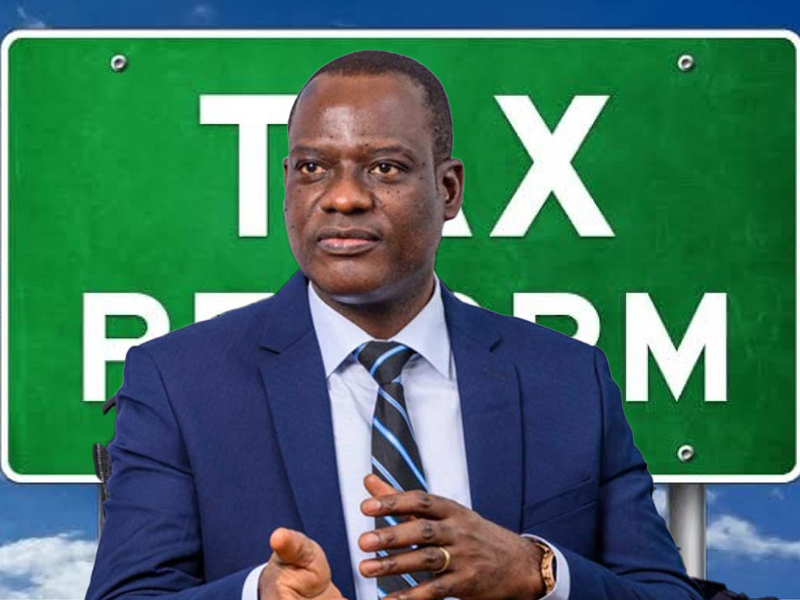Nigeria has officially moved to bring remote workers and social media influencers into the country’s tax net, as authorities seek to expand revenue and formalize a growing digital economy.
“If you’re a remote worker, you’re a worker, you just happen to do your work remotely … that amount of money paid to you is your income,” said Taiwo Oyedele, Chairman of the Presidential Committee on Fiscal Policy and Tax Reforms.
He explained that while foreign employers may not deduct taxes for Nigeria, the obligation now rests on individuals to self-declare their earnings or risk penalties, interest, and backdated charges.
“The same thing applies to influencers. You earn income, you pay tax as well,” he added.
The Fiscal Policy and Tax Reforms
Nigeria’s fiscal reform blueprint is designed to address one of the country’s chronic weaknesses: a narrow tax base. With a tax-to-GDP ratio of just 10.8 percent in 2022, Nigeria trails behind Africa’s average of 16 percent and far below the OECD average of over 30 percent.
The committee, inaugurated in 2023, aims to simplify the complex web of more than 60 overlapping taxes collected by federal, state, and local authorities.
The reforms seek to harmonize taxes into fewer, clearer categories, clarify jurisdictional overlaps, and empower a new National Revenue Service to centralize and streamline collection. Oyedele explained that citizens will primarily deal with personal income tax, while redundant levies that discourage small businesses are expected to be phased out.
This structural shift is intended not only to widen compliance but also to restore public trust in taxation by reducing bureaucracy and duplication.
How It Works for Influencers and Remote Workers
The policy targets Nigeria’s growing digital labour force, which has largely operated outside formal tax structures.
For remote employees working with companies abroad, income earned overseas becomes taxable locally if the individual resides in Nigeria for more than 183 days within a year. Since foreign employers are unlikely to deduct Nigerian tax, workers must self-assess and file annual tax returns.
Similarly, influencers and creators who earn money from brand deals, sponsorships, affiliate marketing, or platform payouts from YouTube, TikTok, or Meta must declare their income.
The government plans to tighten enforcement using digital financial surveillance, requiring banks and fintech platforms to flag large inflows that lack corresponding tax records.
“If the government sees the movement of the money and your refusal to declare, they would deem it as your income,” Oyedele warned, hinting at a shift to data-driven tax monitoring in the digital age.
Who Wins, Who Loses
The Nigerian government emerges as the biggest winner, potentially unlocking billions of naira annually from the under-tapped gig economy. The influencer marketing sector alone is projected to surpass $20 million in yearly revenue, while Nigeria’s freelance workforce numbers in the millions.
Formal businesses also stand to benefit, as the reforms reduce unfair competition from digital workers who previously operated tax-free. However, many small creators, freelancers, and part-time remote workers may feel burdened by compliance costs, record-keeping requirements, and the risk of penalties.
Tax experts caution that without proper education and support systems, enforcement could backfire, pushing more people into informality rather than compliance.
Experts caution that the risk is that enforcement without education could backfire, pushing people further into informality
What Influencers and Remote Workers Should Do Now
Industry experts recommend that digital earners take proactive steps to regularize their tax status. First, individuals should register with the Federal Inland Revenue Service (FIRS) or relevant state tax authorities and obtain a tax identification number (TIN).
Keeping clear records of contracts, invoices, and platform earnings is critical, as it allows for the deduction of business expenses such as internet costs, equipment purchases, and content production.
Some freelancers may benefit from registering as sole proprietors or limited liability companies, which open access to allowable deductions and potentially lower tax rates.
Tax analysts advice online money makers to set aside 15 to 30 percent of monthly income for tax obligations until their liabilities are clear. Early compliance, analysts note, will protect earners from lifestyle audits and ensure smoother relations with tax authorities.
What This Means for Nigeria’s Tech Ecosystem
Nigeria’s tech ecosystem, the largest in Africa and a magnet for startup funding, over $1.2 billion in 2022, will feel the ripple effects of these reforms.
Formalizing remote work and digital content creation could strengthen Nigeria’s fiscal sustainability while improving the country’s global investment image by demonstrating tax discipline.
However, risks abound: overzealous enforcement may stifle innovation, reduce disposable income for creative entrepreneurs, and push talent toward tax-friendly jurisdictions abroad.
Kenya’s experience with taxing digital services offers a cautionary tale, where aggressive policies triggered backlash and prompted some digital workers to migrate.
Oyedele insists that balance is key: “Nigerians are willing to pay tax when they see value,” he stressed.
The test for policymakers will be ensuring that new revenues translate into better infrastructure, digital policies, and trust-building reforms that reinforce, rather than erode, Nigeria’s emerging digital future.
Talking Point
Nigeria’s decision to tax remote workers and influencers is a pragmatic step toward expanding the country’s shallow tax base, but its success will hinge less on the law itself and more on the fairness and efficiency of its enforcement.
On one hand, formalizing digital earnings aligns Nigeria with global practice and could unlock much-needed revenue, particularly as traditional sectors underperform.
On the other, the move risks alienating the very demographic driving Nigeria’s digital economy if implemented heavy-handedly, many influencers and freelancers lack the literacy or structures to navigate complex filings, and punitive audits could push talent offshore or underground.
Without visible improvements in governance, transparency, and service delivery, this policy may deepen mistrust, reinforcing the perception that taxes are a burden rather than a social contract.
For reforms to be transformative, Nigeria must couple enforcement with education, streamlined processes, and demonstrable returns on citizens’ compliance.






